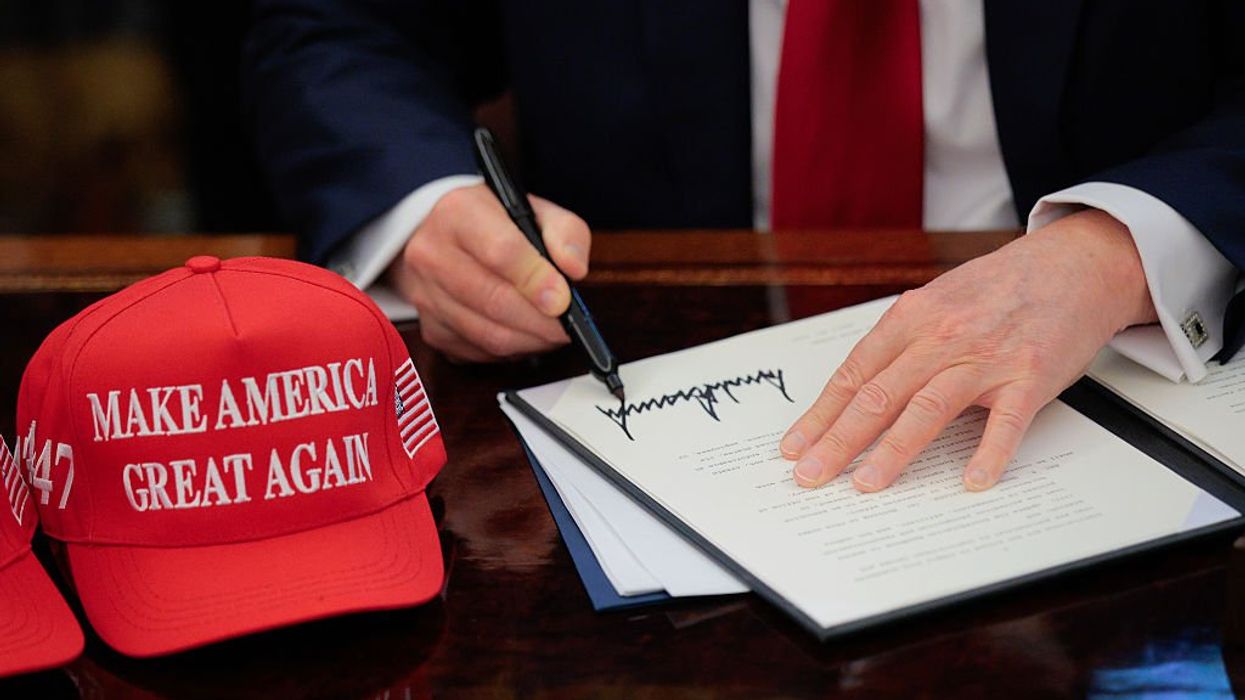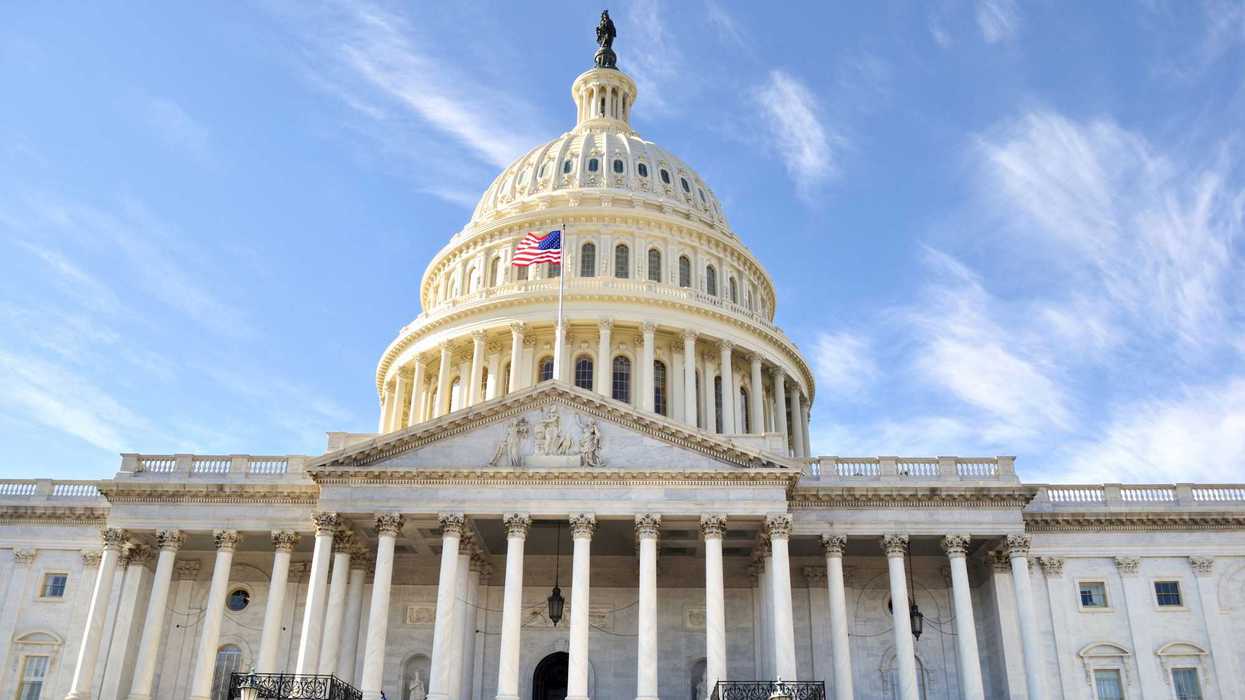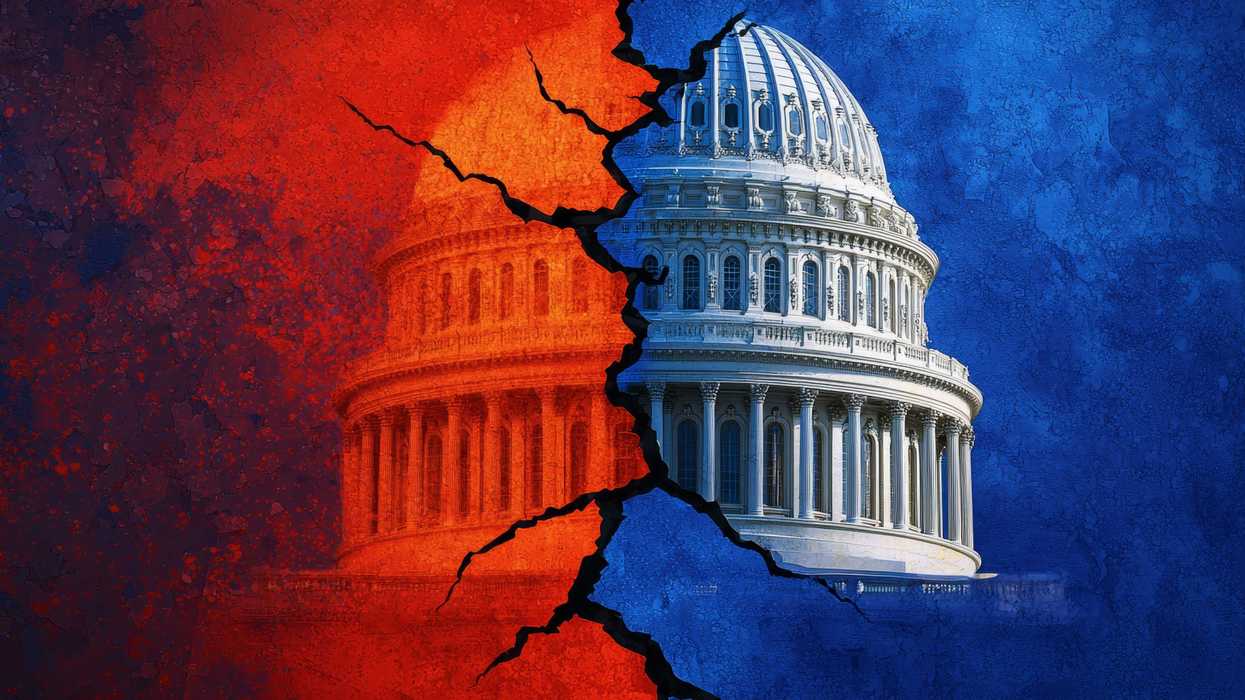The Fulcrum strives to approach news stories with an open mind and skepticism, striving to present our readers with a broad spectrum of viewpoints through diligent research and critical thinking. As best we can, we remove personal bias from our reporting and seek a variety of perspectives in both our news gathering and selection of opinion pieces. However, before our readers can analyze varying viewpoints, they must have the facts.
Has President Trump issued several executive orders based on national emergency declarations, and if so, which ones are they?
- National Energy Emergency: Declared on his first day in office, this order aims to fast-track oil and gas projects, but it's facing legal challenges from multiple states.
- Trade Emergency: Trump invoked the International Emergency Economic Powers Act (IEEPA) to impose tariffs on foreign trade, citing a national emergency caused by large trade deficits.
- Forest Logging Emergency: In March 2025, the Trump administration issued an executive order declaring a national emergency to expedite logging on over 112 million acres of national forest land. The emergency designation allows logging projects to proceed with fewer regulatory hurdles, limiting challenges from environmental groups and local governments. Scientists and conservationists have raised concerns that this approach could actually increase fire risks rather than mitigate them.
- Immigration and the Southern Border: Trump has declared a national emergency at the southern border to justify his mass deportation efforts. His administration has invoked the Alien Enemies Act to expedite the removal of suspected gang members, particularly Venezuelan nationals. Additionally, Trump has confirmed plans to use military assets to assist with deportations under this emergency declaration.
Are any of the executive orders that invoke a national emergency facing legal challenges?
Several of Trump's executive orders that invoke a national emergency are facing legal challenges. For example, a group of small businesses has petitioned a U.S. court to block tariffs imposed under a national emergency declaration, arguing that Trump exceeded his authority. Additionally, California Attorney General Rob Bonta and a coalition of attorneys general have filed a lawsuit against Trump's executive order declaring a "national energy emergency," alleging that it unlawfully fast-tracks fossil fuel projects while bypassing environmental protections.
There are multiple lawsuits challenging various executive actions, and a litigation tracker estimates that over 230 cases have been filed against Trump administration policies.
Have previous presidents ever invoked national emergencies for executive orders?
Many U.S. presidents have issued executive orders based on national emergency declarations. A few notable examples are:
- Franklin D. Roosevelt (1933) – Declared a national emergency to close banks temporarily, stabilizing the financial system during the Great Depression.
- Harry Truman (1950) – Declared a national emergency during the Korean War, allowing the government to mobilize resources for military production.
- Richard Nixon (1971) – Used emergency powers to impose wage and price controls to combat inflation.
- George W. Bush (2001) – Declared a national emergency after the 9/11 attacks, expanding surveillance and counterterrorism measures.
- Barack Obama (2009) – Declared a national emergency in response to the H1N1 flu pandemic, allowing hospitals to bypass certain regulations.
Has the Supreme Court in past history defined in some manner what a national emergency is?
The Supreme Court has ruled on cases that clarify what qualifies as a national emergency. One recent case, Feliciano v. Department of Transportation, addressed whether federal employees serving in the military during a national emergency are entitled to extra pay. The Court ruled that service during an emergency qualifies for differential pay, even if the service isn’t directly tied to the emergency.
Historically, the Court has weighed in on presidential emergency powers. Some examples are:
- Youngstown Sheet & Tube Co. v. Sawyer (1952) – The Court ruled that President Truman could not seize steel mills during the Korean War, stating that emergency powers must be explicitly granted by Congress.
- Trump’s Tariff Cases (2025) – Several lawsuits challenge Trump's use of the International Emergency Economic Powers Act (IEEPA) to justify tariffs. Courts are reviewing whether his emergency declarations meet legal standards.
Has the Supreme Court ever ruled against a president for the use of a national emergency as the reason for an executive order?
The Supreme Court has ruled against presidents who have invoked national emergencies to justify executive orders. One notable example is Youngstown Sheet & Tube Co. v. Sawyer (1952), where the Court struck down President Harry Truman’s executive order to seize steel mills during the Korean War. Truman argued that the seizure was necessary to prevent a labor strike from disrupting steel production, which was vital for national defense. However, the Court ruled that the president did not have the authority to take such action without congressional approval.
More recently, legal challenges have emerged regarding President Donald Trump’s executive orders, including his “ Declaring a National Energy Emergency” order, which has been challenged by multiple states for allegedly misusing emergency powers. Courts have also blocked various executive actions related to immigration and national security, questioning whether they were legitimate uses of emergency authority.
What is a primary court argument Trump has used to justify declaring a national emergency to justify some of his executive orders?
Trump has argued that his national emergency declarations are justified based on his executive authority, but courts are actively reviewing whether his claims hold legal weight. For example, a three-judge panel at the U.S. Court of International Trade recently questioned whether Trump had the authority to impose tariffs under a national emergency declaration, with businesses arguing that only Congress has the power to levy tariffs.
David Nevins is co-publisher of the Fulcrum and co-founder and board chairman of the Bridge Alliance Education Fund.



















 Mayor Ravi Bhalla. Photo courtesy of the City of Hoboken
Mayor Ravi Bhalla. Photo courtesy of the City of Hoboken Washington Street rain garden. Photo courtesy of the City of Hoboken
Washington Street rain garden. Photo courtesy of the City of Hoboken
